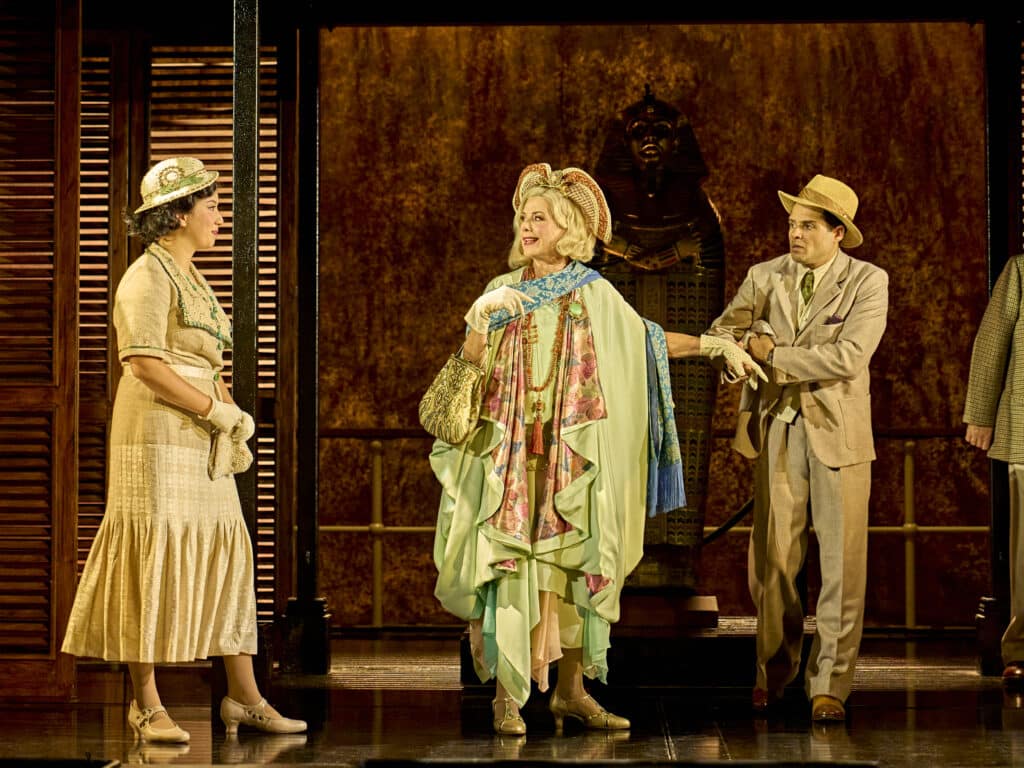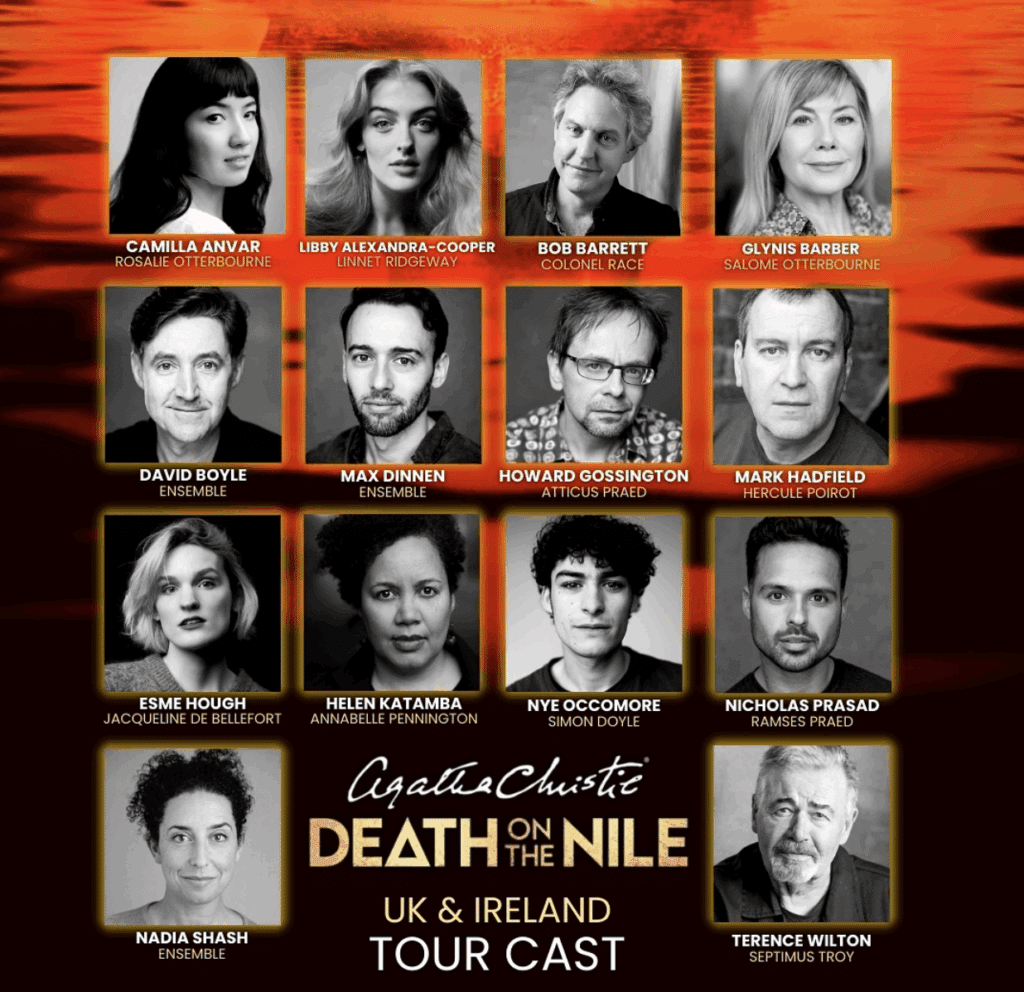The latest tour of DEATH ON THE NILE opened its Welsh run at Cardiff’s New Theatre last night, and it’s fair to say the audience arrived with high expectations. After the sell-out success of And Then There Were None and Murder on the Orient Express, this new production brings back director Lucy Bailey, writer Ken Ludwig, and producers Fiery Angel for the European premiere of a fresh adaptation of one of Agatha Christie’s most recognisable stories. What they’ve created is a production that feels both familiar and surprisingly alive, with enough style and suspense to hold the room steadily in its grip for two and a half hours.
Lucy is clearly at home in Agatha Christie’s world. Her gift for shaping tension is obvious from the first moments, yet she never forgets that the stories breathe through character. The play begins in a swirl of introductions and tangled relationships, and while the plot is famously intricate, the staging keeps it clear and engaging. The real pleasure is in watching the company ground the drama in believable emotion. Even as the mystery tightens, the story feels human rather than mechanical.
At the centre of it all is MARK HADFIELD as Hercule Poirot. He avoids the temptation to lean too heavily into caricature. His Poirot is precise, intelligent and often funny, but he also carries a softness that works beautifully in the more reflective moments. Mark makes the famous detective feel less like a symbol and more like a man burdened with the responsibility of making sense of chaos. When the inevitable confrontation arrives, he handles it with measured control, reminding us why Poirot is one of Christie’s most enduring creations.

GLYNIS BARBER, playing Salome Otterbourne, brings a burst of energy every time she steps on stage. Salome can easily become a figure of pure comic relief, but Glynis strikes a stronger balance. Her Salome is dramatic and flamboyant, yes, but also emotionally fragile. The humour lands well, especially in her scenes with her daughter, but she also allows us glimpses of the woman behind the theatrics. It adds texture to a role that could easily be one-note.
As Colonel Race, BOB BARRETT is the grounding presence the story needs. His calm authority plays neatly against Poirot’s sharper edges. There is warmth in the friendship between the two men, and Bob’s steady performance helps anchor several key scenes. He makes Colonel Race dependable without being dull, and his exchanges with Hadfield bring an easy charm that the audience responded to warmly.
You can watch our interview with Bob HERE.
The production is at its strongest when balancing Agatha’s trademark mix of light and shade. The humour is used wisely and never undercuts the tension. Instead, it serves as a reminder that these characters are not merely pieces in a puzzle. When darkness arrives, it feels earned and genuinely unsettling. Lucy Bailey leans into the shifting emotions without overplaying them, and the cast follows suit with performances that stay honest even as the plot grows increasingly tangled.

The visual world of the play helps maintain this tone. The set suggests the elegant claustrophobia of a river steamer without overwhelming the actors. Lighting is used thoughtfully, creating a sense of heat and glare that contrasts with the shadows that creep in as the story deepens. Nothing feels showy. Instead, everything works together to keep the focus where it belongs: on the characters and the moral complexities Agatha Christie was so good at exploring.
What lingers most after the curtain call is the sense of ensemble. Every performer contributes something meaningful, and the pacing rarely drags. If the opening scenes take a moment to settle, it’s because of the sheer number of personalities introduced in quick succession. Once the story finds its rhythm, the production becomes increasingly absorbing, drawing the audience closer with each reveal.

For fans of Agatha Christie, this adaptation offers exactly what they hope for: mystery, atmosphere and a clever unravelling that rewards attention. For newcomers, it serves as a surprisingly accessible introduction to one of her most beloved tales. Above all, the show succeeds because it trusts Agatha’s ability to weave humour into darkness and darkness into humour. That balance is what keeps her stories alive, and this production honours it with confidence.
DEATH ON THE NILE continues at the New Theatre in Cardiff until 29th November, and it is well worth a visit. Whether you go for the nostalgia, the intrigue or simply a good night of theatre, you’re unlikely to leave disappointed.
More details and tickets HERE.


